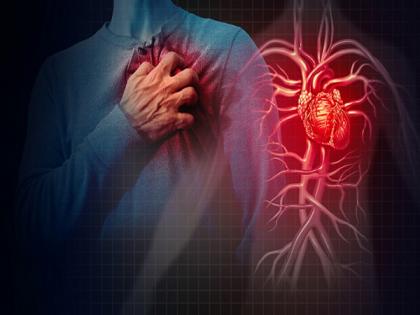Acetylcholine can prevent inflammation in heart, blood vessels: Research
By ANI | Published: April 3, 2022 09:36 PM2022-04-03T21:36:17+5:302022-04-03T21:45:13+5:30
B cells in the bone marrow, which produce a chemical messenger called acetylcholine can prevent inflammation in the heart and blood vessels by blocking white blood cell production, suggests new research led by the Massachusetts General Hospital.

Acetylcholine can prevent inflammation in heart, blood vessels: Research
B cells in the bone marrow, which produce a chemical messenger called acetylcholine can prevent inflammation in the heart and blood vessels by blocking white blood cell production, suggests new research led by the Massachusetts General Hospital.
This process might help scientists target inflammation in cardiovascular conditions. The research was published in the journal, 'Nature Immunology'.
Senior author Matthias Nahrendorf, MD, PhD, an investigator in MGH's Center for Systems Biology and Richard Moerschner professor at the MGH Research Institute and Harvard Medical School, explained that the nervous system plays a role in controlling blood cell production through chemical messengers or neurotransmitters.
"This is for instance important in people exposed to stress, where stress hormones -- part of the 'fight-or-flight' response controlled by the sympathetic nervous system -- may increase bone marrow activity and cardiovascular inflammation in response to the neurotransmitter noradrenaline," he said.
The sympathetic nerves have a counter player -- the parasympathetic nerves, which slow down responses and bring about a state of calm to the body, mainly through the neurotransmitter acetylcholine.
Because acetylcholine can have a protective effect against inflammation and heart disease, the researchers studied this neurotransmitter in the bone marrow.
"When we looked into how acetylcholine acts on the production of blood cells, we found that it does the expected -- it reduces white blood cells, as opposed to noradrenaline, which increases them," said Nahrendorf.
"What was unexpected though was the source of the neurotransmitter acetylcholine," he added.
The team found no evidence in the bone marrow of the typical nerve fibres that are known to release acetylcholine. Instead, B cells, which are themselves a type of white blood cell (most known for making antibodies), supplied the acetylcholine in the bone marrow.
"Thus, B cells counter inflammation -- even in the heart and the arteries -- via dampening white blood cell production in the bone marrow. Surprisingly, they use a neurotransmitter to do so," said Nahrendorf.
Tapping into this process may help investigators develop strategies to block inflammation in cardiovascular conditions such as atherosclerosis. "Ultimately this may lead to new therapeutics that combat myocardial infarction, stroke, and heart failure," said Nahrendorf.
( With inputs from ANI )
Disclaimer: This post has been auto-published from an agency feed without any modifications to the text and has not been reviewed by an editor
Open in app